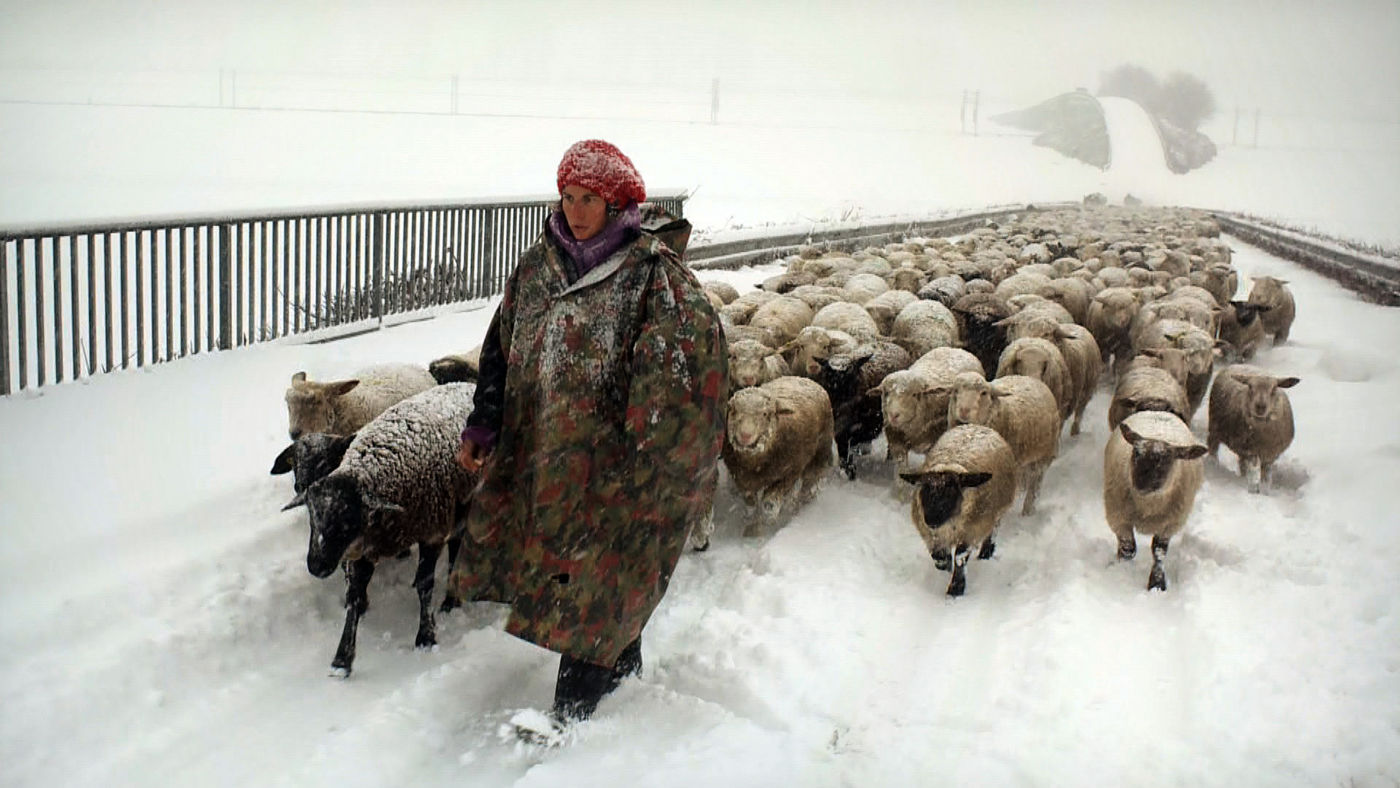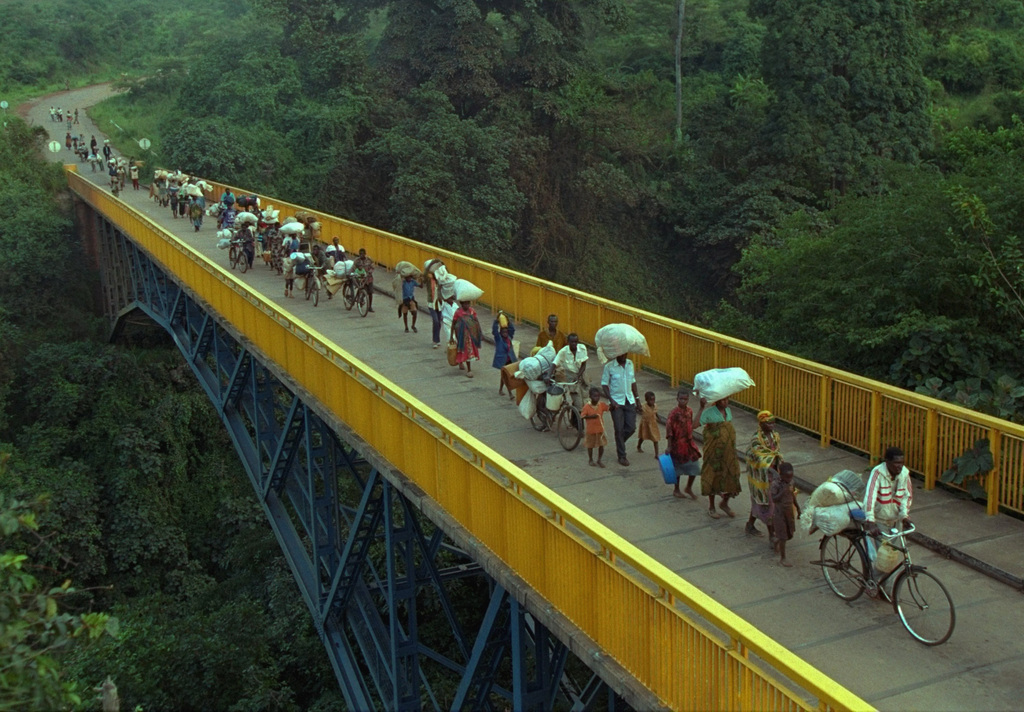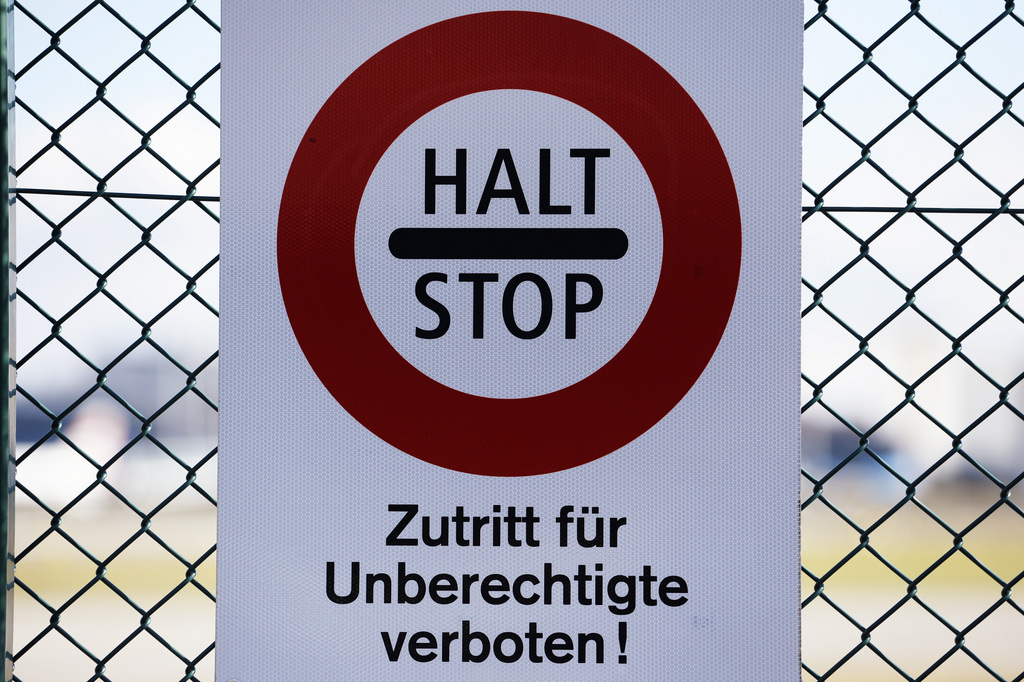Immigration vote: picture is grim for Swiss films

Switzerland’s exclusion from the European Union’s culture programme – in response to Swiss voters approving limits on immigration – is threatening the distribution of Swiss films abroad. Government compensation isn’t enough and a solution isn’t on the cards.
When discussing European cinema, Switzerland isn’t one of the first countries to come to mind. Yet recently directors such as Jean-Stéphane Bron, Ursula Meier and Markus Imhoof – to name just a few – have succeeded not just in making a name for themselves in Europe or indeed globally, but also in gaining a share of the market.
The quality and international character of their films is without doubt the secret to their success. But the visibility which they have enjoyed is due partly to the European financial support guaranteed by the EU’s MEDIA programmeExternal link – support no longer offered to Switzerland.
“Since the beginning of the year Swiss cinema has been considered Third World – treated like that from Ghana, Lebanon or Albania,” says a concerned Ivo Kummer, head of the cinema sectionExternal link of the Federal Office of Culture.
“There’s no longer any incentive for European distributors and global sellers to promote Swiss products. Therefore the risk is that we’ll see Swiss films disappear from European screens.”
The reason is already known. After Swiss voters decided on February 9 to curb EU immigration via the introduction of quotas – incompatible with the free movement of people – the EU reacted by suspending Switzerland from various cultural, educational and research projects including MEDIA, Erasmus+ and Horizon2020.
A “purely political” decision which unfairly hits the world of culture, according to Yves Fischer, assistant director at the culture office.
Two-way problem
The repercussions of Switzerland’s exclusion from the MEDIA programme are already being felt.
“We now rarely consider Swiss films because we know that the same distributors are more reticent,” said Jean-Christophe Simon, director of the international sales agency Films BoutiqueExternal link, which promoted, among other films, Markus Imhoof’s More Than Honey (2012) – the most successful Swiss documentary of all time.
“European distributors receive between 70 cents and one euro for every cinema ticket for a European film. Without this support, even a film like More Than Honey would probably not have ended up being shown in around 30 countries. Not to mention a smaller – but excellent – documentary such as Hiver Nomade (Winter Nomads) by Manuel von Stürler, which would risk going unnoticed.”
The competition is enormous, especially for Swiss films, which often can’t count on well-known actors or big budgets. Films Boutique, for example, looks at some 400 films a year and chooses around ten of them.
But the problem also exists in the other direction: not being in the MEDIA programme also has a negative impact on the distribution of European films in Switzerland, which in 2013 made up a third of the Swiss market.
Hands are tied
The MEDIA programme was launched by the European Union in 1991 to combat the dominance of American blockbusters. It guarantees financial support for the development, promotion and distribution of European works within Europe and beyond in cinemas and at film festivals.
Non-EU Switzerland joined in 2006External link – as part of a series of bilateral treaties – and until now has received around CHF4 million ($4.4 million) a year in direct or indirect aid.
To make up for this loss, the government has earmarked a credit of CHF5 million, which can be renewed in 2015. However, this temporary measure only covers the internal market, in particular the distribution of European films.
“For us it was fundamental to be able to ensure a variety of what was on offer,” said Ivo Kummer.
When it comes to exporting, however, Switzerland’s hands are tied. The law does not allow payment to be made to foreign distributors. The only palliative is the €250,000 (CHF300,000) allocated to Switzerland by EurimagesExternal link, the Council of Europe fund for cinematographic works.
“There’s no point in making calculations – Switzerland will come out a loser because beyond MEDIA and the Swiss film promotion agencyExternal link there is no national strategy for exporting films,” said Roberto Ollo, executive director of Eurimages.
“Countries like France, on the other hand, actively support the film industry – also abroad – because it’s considered an instrument for promoting culture, business and tourism.”
Limiting the benefits of the MEDIA programme solely to a question of money would be simplistic, agree industry experts. Being a member of the club is also a significant opportunity to do deals and to grow – something that is hard to replace.
Tricky talks
At the Locarno Film FestivalExternal link, which runs until August 16, politicians and industry professionals have stressed the need to resolve the dispute with the EU as soon as possible so as not to put the film industry at risk.
However, the ground is anything but even. Before the February vote, negotiations between Switzerland and the EU had already been paralysed over technical-legal issues. Now there’s the additional dispute over limiting immigration.
“I won’t pretend that the talks will be easy,” said Kummer. “From an EU point of view the Erasmus+ and MEDIA programmes have a direct connection with the institutional dossier and the principle of freedom of movement. Because of this Brussels is applying the brakes.”
For the Horizon2020 research project, a solution has been found, enabling partial Swiss participation.
The next move is expected in autumn, with the approval of a negotiating mandate.
At a press conference in Locarno, Interior Minister Alain Berset repeated that the government’s target was for Switzerland to rejoin the MEDIA programme at the beginning of 2015 – “but it takes two to negotiate”, he said. And the ball is now in Brussels’ court.
MEDIA programme
The MEDIA programme was an EU initiative that ran from 2007-2013 – the fourth multi-annual programme since 1991 – with a budget of €755 million.
Its aim was to support projects and activities designed to support the distribution (55% of the budget) and development (20%) of thousands of films, as well as training activities (7%), promotion projects (9%) and festivals throughout the continent.
Although the MEDIA programme ended in 2013, many activities are set to continue under the Creative Europe programme, which provides opportunities in both the culture and audiovisual sectors.
The programme comprises the 28 EU nations and the four EFTA nations (Iceland, Liechtenstein, Norway and Switzerland). Switzerland joined in 2006.
Immigration vote
On February 9, 2014, Swiss voters narrowly voted in favour (50.3%) of an initiative to limit immigration. The move by the rightwing Swiss People’s Party – known for its anti-foreigner and anti-EU agenda – calls for a reintroduction of quotas, as well as a national preference when filling job vacancies and restrictions of immigrants’ rights to social benefits.
Critically, it also stipulates that Switzerland will have to renegotiate its bilateral accord with the EU on the free movement of people within three years or revoke it. This in turn could threaten other bilateral agreements with the EU.
Because it violates the free movement of people accord, the Swiss government invited the EU to renegotiate the treaty. In July, the EU rejected the request.
(Translated from Italian by Thomas Stephens)

In compliance with the JTI standards
More: SWI swissinfo.ch certified by the Journalism Trust Initiative




You can find an overview of ongoing debates with our journalists here. Please join us!
If you want to start a conversation about a topic raised in this article or want to report factual errors, email us at english@swissinfo.ch.